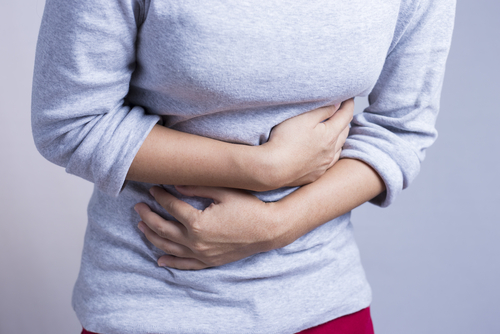Uterine fibroids plague many women of childbearing age. While the condition rarely proves dangerous, it nevertheless causes many women considerable pain. Additionally, fibroids may impact future fertility and make pregnant women more prone to miscarriage. Traditional fibroid treatment meant a visit to the gynecologist followed by a hysterectomy, or surgical removal of the uterus. However, women hoping to start families understandably shy away from the procedure, choosing to grin and bear the pain instead. However, natural methods exist for dulling the agony of uterine fibroids in many women.
What Are Fibroids and Their Symptoms
Uterine fibroids consist of growths of non-cancerous tissue in a woman’s uterus. Fortunately, the vast majority of women suffering from fibroids do not later develop uterine cancer. However, this knowledge provides little comfort to those struggling to conceive. Fibroids come in different sizes, from microscopic to larger than a basketball. Rarely, uterine fibroids grow large enough to put pressure on the lungs, as one woman plagued with a 61-pound fibroid discovered. Some women with uterine fibroids remain unaware they have the condition as they experience few or no symptoms. Others with fibroids suffer unusually heavy periods and may spot bleed between menstrual cycles. They may also experience lower abdominal and lower back pain, pain with sexual intercourse and difficulty urinating depending upon the location and size of the growth. While any woman can develop uterine fibroids, some are more prone to the disorder. Overweight and obese women tend to develop fibroids more often, especially those who consume diets high in red meat and low in vegetables. Women of African-American descent and those who have older family members with the condition run higher risks of developing fibroids. Women who have never borne children are more susceptible to fibroids as well.
Natural Ways to Find Relief
Luckily, women suffering from fibroids can look to nature for remedies that preserve fertility while easing pain. One way to decrease the agony involves shedding a few extra pounds. While weight loss alone will not completely erase your fibroids, it can diminish symptoms considerably. Changing your diet while dropping excess pounds can decrease the prevalence of fibroids. Many meat and dairy products contain artificial hormones that can throw off the body’s natural endocrine balance. Eliminating or reducing the consumption of red meats in favor of eating more dark green and cruciferous vegetables allows hormones to readjust to their natural state. Taking regular physical exercise may feel like the last thing a woman suffering from fibroid pain wants, but moving can reduce symptoms. Certain yoga poses shrink fibroids naturally, although the relaxing effects of the process may matter more than the moves practiced. Alternative medical practitioners use certain herbs to help reduce fibroid growths naturally. Although science has yet to prove the efficacy of herbal remedies for treating fibroids, those interested in relief can reach for the following:
- Chaste Tree Berry ? Chaste tree berry helps to restore healthy hormonal balance. As many researchers believe fibroids result from an overabundance of estrogen in the body, supplementing with this herb may help prevent growths from returning after they die.
- Ashwagandha ? Ashwagandha acts as an adaptogen, which means it helps the body heal naturally by strengthening the immune system’s ability to respond to external stressors. Those who feel their hormonal health may result from toxins in the environment or their diet often experience relief with this herb.
- Blue Cohosh ? Blue cohosh works as an anti-spasmodic which eases uterine contractions associated with heavy periods. Women who believe they may be pregnant should pass on this herb as it may cause miscarriage.
- Milk Thistle ? Although often taken by recovering alcoholics to improve liver function, the more effectively your liver works, the easier it is to flush toxins from the body. As some medical professionals believe environmental toxins can cause hormonal imbalance, this herb may prove useful.
- Peppermint or Spearmint ? Both long praised for easing abdominal discomfort, peppermint and its gentler cousin, spearmint, can ease the discomfort of uterine fibroids. The herbs act to deaden the nerves in the abdomen, resulting in feeling less pain. The herbs also work as anti-inflammatory agents that help prevent the body from attacking its own tissue.
- Ginger ? Another hormone-balancing herb, ginger may help flush excess estrogen from the body. While this doesn’t shrink existing fibroids, it can help prevent new ones from forming.
While most herbal preparations cause little harm, women benefit from checking with their doctors before adding supplements. Some herbs weaken the effectiveness of antibiotic medications and others can further frustrate women trying to conceive. Other herbs may make birth control less effective, so those hoping to postpone having children likewise do well to check with a physician before using herbal treatments. Finally, acupuncture or acupressure may temporarily ease symptoms of uterine fibroids. Many Asian medical practitioners believe that bringing the body’s chi, or energy, back into proper balance cures various health woes. If nothing else, the technique does reduce pain in most sufferers.
Protecting Reproductive Health
Women with uterine fibroids can maintain their fertility while treating the symptoms safely and naturally. Making simple dietary changes can reduce the number and size of growths. Here’s to feeling your best by calming fibroid flares the way Mother Nature intended.








